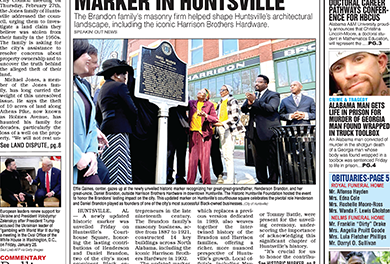By Sen. Jill P. Carter and Del. Stephanie Smith
The most well-known policy victories of the Civil Rights movement are the Civil Rights Act and the Voting Rights Act. Less discussed are the non-federal policy demands that emerged during this period regarding community control of education and law enforcement. The latter emerged in response to police brutality leading to calls for robust community oversight that could investigate and discipline police officers that violated the humanity of people in the community.
Just a few weeks ago, Baltimore City was confronted with a 500+ page document detailing the harrowing, coordinated and longstanding criminal behaviors of the Baltimore Police Department’s (BPD) now infamous Gun Trace Task Force. While the reforms of a federal consent decree continue, there is still an important role for community oversight to ensure the BPD can sustainably transform. In 50 years, Baltimore communities plagued by crime and police misconduct, completely related circumstances, are potentially close to accessing meaningful community control of local law enforcement.
In 1999 there was an effort in Baltimore City to create a community oversight entity with these powers. Unfortunately, Baltimore’s current Civilian Review Board (CRB) has limited investigatory powers and no disciplinary power. Additionally, the CRB does not have the resources needed to even utilize its limited powers to the fullest extent.
During the 2021 Maryland General Assembly legislative session, the state legislature took historic steps and advanced a suite of police accountability and reform laws. To maximize remaining concerns around community oversight of BPD, our City needs an independent entity that has full investigatory and disciplinary power. This is why we are sponsoring a bill that would build upon the police discipline provisions in Senate Bill (SB) 441 or House Bill (HB) 670 and give additional powers and resources to the CRB. To date, the CRB has struggled due to insufficient resources to be fully staffed and perform extensive community outreach. SB 441or HB 670 has a funding mandate that would require more investment in the CRB to be fully functional and operational. While this bill does not grant full disciplinary power to the CRB, this is a major step in that direction and would be a meaningful resource to community members who have experienced police abuse.
The committees formed by SB 441 or HB 670 have significant overlap with the work assigned to the CRB, which leaves the potential for confusion and redundancy between these new entities and the CRB. Because SB 44 or /HB 670 will not go into effect until July 2022, this gives the legislature time to enact changes to the legislation or otherwise decide how to proceed with these overlapping entities. As it currently stands, the CRB remains operative until further action is taken.
Public safety has been significantly hampered by dysfunction and criminality within the ranks of those sworn to serve and protect. Honorable officers are faced with a community wary of providing cooperation with the BPD due to systemic abuses of vulnerable community members. Nobody wins when we fail to hold bad actors accountable. Romantic notions of the reemergence of an “officer friendly” must ultimately accept that community control is the type of effort that will help forge more trust after decades of repeated breaches. Now is the time to do what is right.
Senator Jill P. Carter represents the 41st District in Maryland.
Delegate Stephanie Smith serves the 45th District in Baltimore City.
The opinions on this page are those of the writers and not necessarily those of the AFRO. Send letters to The Afro-American • 145 W. Ostend Street Ste 600, Office #536, Baltimore, MD 21230 or fax to 1-877-570-9297 or e-mail to editor@afro.com
Help us Continue to tell OUR Story and join the AFRO family as a member – subscribers are now members! Join here!
The post Commentary: We have the right to public safety in our community appeared first on AFRO American Newspapers .











